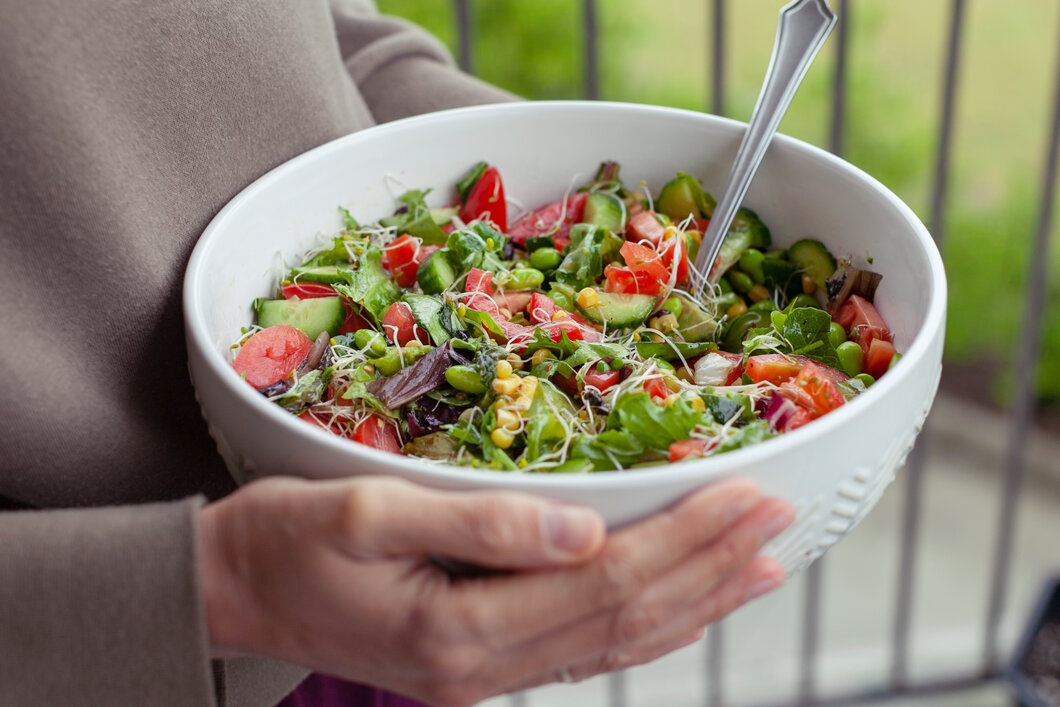Deciding to change your life can be both frightening and rewarding. When it comes to overcoming the clutches of addiction, both your physical and mental well-being can be tested. Alcohol and drug abuse can wreak havoc on your body, and while detoxing, your nutritional needs can shift drastically. It is important to fuel your body, and during detox, your body will need all the proper fueling it can receive. Getting your body back on track is a significant aspect of overcoming the damage caused by addiction. The role of nutrition in recovery can’t be ignored. You need to care for yourself on all different levels.
What Vitamins and Minerals Am I Lacking?
Addiction can impact you in number of ways. That is why it is important to realize that no one way is necessarily going to be the right way. Many factors depend on your type of addiction. While there are separate issues to consider, there are some general assumptions across the board.
Why You Need a Specific Diet
- When you rely on drugs or alcohol, you are less likely to consume the recommended amount of food required daily to maintain a healthy diet.
- You may choose less nutritious food, or you may even skip meals altogether. There is an old joke about having “liquid lunch” (when someone prefers a beer or cocktail over food), but the underlying issue remains real.
- Abuse of drugs or alcohol can lead to an increase in the speed at which your body uses energy. This means that you can feel on top of the world one moment, but you can barely move the next.
- In addiction, you can also increase your lack of nutrients through vomiting and diarrhea. This takes an additional toll on your body and mental health, and at times it can be hard to measure. In these scenarios, your body is trying to communicate a message that it is not healthy.
- Depending on your method of addiction, you can damage your guts so that they are unable to properly absorb the nutrients in food.
Basic Guidelines for Detox/Rehab Diets
Figuring out exactly what foods to eat during a drug or alcohol detox could be difficult. It helps to set a foundation. Part of that foundation can depend on what your physical body is accustomed to. Though this isn’t set in stone, these basic guidelines can help lead you in the right direction. Different dependencies can impact you significantly, but some general rules apply.
Alcoholism
Depending on your level of dependency, your major deficiencies would lie within the B complex vitamins. This includes inadequate stores of B and C vitamins. Alcoholism can also impact the loss of minerals zinc, magnesium, and calcium. Women are especially prone to alcohol-attributed risks of osteoporosis.
Opiate Addiction
The best foods to eat during opioid addiction recovery vary but are easy to introduce to your current diet. The most encountered opiates are heroin and morphine. While it isn’t pretty to mention, this type of addiction can lead to constipation and digestive problems in general. Therefore, a high fiber diet is critical—leafier dark greens, whole grains, beans, and rice are important.
Stimulant Addiction
This addiction is strongly associated with crack and methamphetamines. It can cause a person to stay up for days without sleep, which can cause an array of deficiencies. Omega-3 fatty acids are excellent supplements for those dealing with this addiction. Omega-3s help combat depression and lower the risk of coronary heart disease.
The Best Foods to Eat in Drug Addiction Recovery

Depending on your path to recovery, your needs could vary drastically. There are a few basics to consider when it comes to foods that are good for addiction recovery.
Foods to support recovery include:
Poultry and Fish
These proteins possess an amino acid called tyrosine, which is essential in creating the neurotransmitters dopamine and norepinephrine, promoting clarity and a sense of well-being.
It is essential to consume proteins in general. Both animal and plant proteins break down into amino acids that the body uses to repair cells.
Other Protein Sources
- Tuna, turkey, and chicken are excellent sources of B6.
- Red meat, pork, and poultry are excellent sources of iron.
- Salmon is high in omega 3s.
- Lentils and black beans are excellent vegetable sources.
- The stigma against this fermented soy food is strong, but given the proper chance and cooking style, it can significantly impact your needs following an addiction detox. It is easy to digest, packed with protein, and can help repair liver damage. It is also easily seasoned, which makes it versatile across many dishes.
Fruits and Veggies
In general, fruits and veggies are essential to a well-balanced diet. Vegetables help restore proper nutrition levels, as well as improve skin and hair needs. Fruits also play an essential role in a healthy diet. Blueberries especially are full of antioxidants that help boost your immune system to clear harmful toxins. Bananas also contain tryptophan, which supports serotonin, which promotes relaxation and proper sleep. Who couldn’t use a night of real sleep?
Whole Grains
It is important to realize that your dietary needs recovering from addiction may not be the same as “eating healthy.” While many healthy living suggestions may direct you away from carbs, complex carbs are your best friend while going through recovery. Don’t shy away from whole grain pastas, rice, and any other grains that will help restore your digestive tract.
How Do I Balance My Diet in Addiction Recovery?

As previously mentioned, your specific needs may vary depending on your specific form of recovery.
When considering how to approach your new nutritional diet, a few basic guidelines do exist.
Your diet should include:
- Complex carbs. While many plans try to shy away from carbs, foods that support recovery can alter these assumptions. While in recovery/detox, complex carbohydrates should be 50% to 55% of your calories consumed. Complex carbs are found in grains, fruits, and vegetables.
- Dairy products. Calcium is key. Even if you don’t traditionally consume dairy products, you must incorporate calcium in some form. You’ll want to strive for two or three cups of dairy products a day.
- With any healthy living plan, protein is vital. You’ll want to strive for 15% to 20% of your caloric intake in protein. Try for two to four ounces of protein-containing meat or fish twice a day.
- While we wish we could say all fats count, it is important to consume healthy fats. Such fats include canola, olive, and flaxseed oils.
- With any diet, you need to stay hydrated. A general rule is that you should drink double your body weight in ounces at the very least every day. It may be difficult at first, but once your body is used to getting the hydration it needs, you’ll feel better than you ever expected.
A Nutritional Diet for Recovery and Beyond

Depending on where you are in your recovery process, your needs can drastically vary. It is essential to understand how your specific substance abuse issue may impact your nutritional needs. However, regardless of the type of drug, a balanced nutritional diet is important for anyone seeking a healthy lifestyle.
By seeking recovery, you’ve already taken the most important step in gaining control of your life again. Use the tips above to help you on your journey by using your nutritional needs to live life to your fullest potential. You deserve to be healthy.




